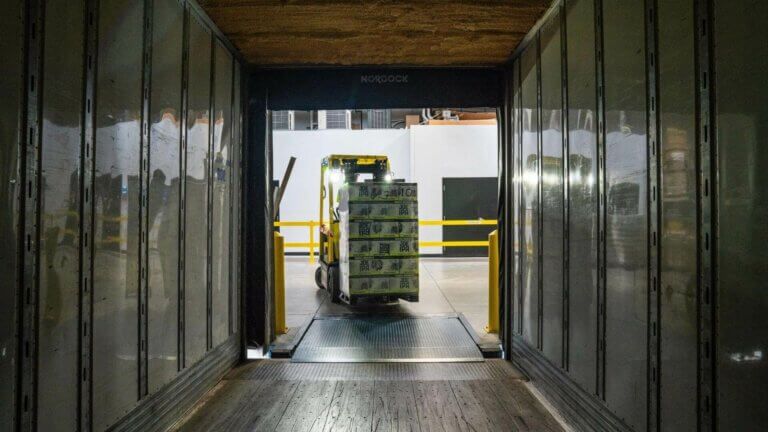Blog

In our previous blog, we looked at the challenges that businesses face in submitting VAT and other declarations on an ongoing basis. However, the compliance cycle doesn’t end there as tax authorities will carry out audits for a variety of reasons to validate declarations. Why do tax authorities carry out audits? When VAT returns consisted […]

As we inch closer to the implementation date of 1 January 2022 for Norway’s new digitized VAT return, let’s take a second look at the details. Norway announced its intentions to introduce a new digital VAT return in late 2020, with an intended launch date of 1 January 2022. With this update comes the removal […]

Update: 3 January 2024 by Inês Carvalho Romania Issues Last-Minute Amendments to B2B E-invoicing Regulations After the implementation of Romania’s new B2B e-invoicing regulations, effective January 2024, the country introduced Government Emergency Order No. 115/2023 with last-minute amendments. We can summarise the key amendments from the new legislation in three categories: 1. Exemptions from the […]

Electronic invoicing is rapidly becoming a standard business process. Governments are pushing for the adoption of B2G invoicing to optimize the public procurement process and also to provide a boost to the adoption of e-invoicing between businesses. Apart from countries that have introduced general e-invoicing mandates to improve fiscal controls – most of which have […]

Update: 25 June 2024 by Dilara İnal Ministry Publishes Draft Guideline on B2B E-Invoicing The German Ministry of Finance (MoF) released a draft guideline on 13 June 2024, detailing the upcoming B2B e-invoicing mandate which will roll out on 1 January 2025. Although the current law only obliges taxpayers to issue and receive e-invoices for […]

The Zakat, Tax and Customs Authority (ZATCA) announced the finalised rules for the Saudi Arabia e-invoicing system earlier this year, announcing plans for two main phases for the new e-invoicing system. The first phase of the Saudi Arabia e-invoicing system is set to go live from 4 December 2021. With the mandate just around the […]

On 1 July 2021 the EU E-Commerce VAT Package was introduced. The package replaced existing distance-selling rules and extended the Mini One Stop Shop (MOSS) into a wider-ranging One Stop Shop (OSS). The implementation of the EU E-Commerce VAT Package was designed to simplify the VAT reporting requirements for sellers and improve the tax take […]

In Insurance Premium Tax (IPT) compliance, the Aviation Hull and Aviation Liability policy is defined under Annex 1, Classes of Non-Life Insurance, as described in DIRECTIVE 138/2009/EC (SOLVENCY II DIRECTIVE). But there are variations and identifying which class the policy is covering can be a challenge. This article will cover what insurers need to know […]

Back in 2019, Portugal passed a mini e-invoicing reform consolidating the country’s framework around SAF-T reporting and certified billing software. Since then, a lot has happened: non-resident companies were brought into the scope of e-invoicing requirements, deadlines have been postponed due to Covid, and new regulations were published. This blog summarises the latest and upcoming […]

In our last look at Romania SAF-T, we detailed the technical specifications released from Romania’s tax authority. Since then, additional guidance has been released including an official name for the SAF-T submission: D406. Implementation timeline for mandatory submission of Romania SAF-T Large taxpayers (as designated by the Romanian tax authorities) – 1 January 2022 Medium […]

Welcome to our Q&A two-part blog series on the French e-invoicing and e-reporting mandate, which comes into effect 2023-2025. That sounds far away but businesses must start preparing now if they are to comply. The Sovos compliance team has returned to answer some of your most pressing questions asked during our webinar. We have outlined […]

A tax authority audit can come in various forms, whether it be directly to the insurer itself or indirectly through a policyholder or broker. It can be targeted, for example, where an insurer has been specifically identified to be investigated due to a discrepancy on a tax return, or it can be indiscriminate in its […]

Insurance Premium Tax (IPT) in Germany is complex. From IPT rates to law changes, this quick guide will help you navigate the challenges of German IPT. For an overview about IPT in general, read our Insurance Premium Tax guide. What is the filing frequency for IPT declarations in Germany? Based on IPT declarations made for […]

In our recent webinar, Sovos covered the new French e-invoicing and e-reporting mandate, and what this means for businesses and their tax obligations. We are witnessing a global move towards Continuous Transaction Controls (CTCs), where tax authorities are demanding transactional data in real-time or near real-time, affecting e-invoicing and e-reporting obligations. As such, from 2023, […]

In the “Statement on a Two-Pillar Solution to Address the Tax Challenges Arising From the Digitalization of the Economy” issued on 1 July 2021, members of the G20 Inclusive Framework on Base Erosion and Profit Shifting (“BEPS”) have agreed upon a framework to move forward with a global tax reform deal. This will address the […]

For anyone relatively new or unfamiliar with insurance premium tax (IPT), an understanding of each of the core components is key to ensuring compliance. They also sit in a logical sequence of five distinct areas. Location of risk Class of business Applicable taxes and tax rates Declaration and payment Additional reporting 1.Location of risk rules […]

What is Intrastat? Intrastat is a reporting regime relating to the intra-community trade of goods within the EU. Under Regulation (EC) No. 638/2004, VAT taxpayers who are making intra-community sales and purchases of goods are required to complete Intrastat declarations when the reporting threshold is breached. Intrastat declarations must be completed in both the country […]

Progress has been made in the roll-out of the Polish CTC (continuous transaction control) system, Krajowy System of e-Faktur. Earlier this year, the Ministry of Finance published a draft act, which is still awaiting adoption by parliament to become law. Draft e-invoice specifications have been released and there has been a public consultation on the […]